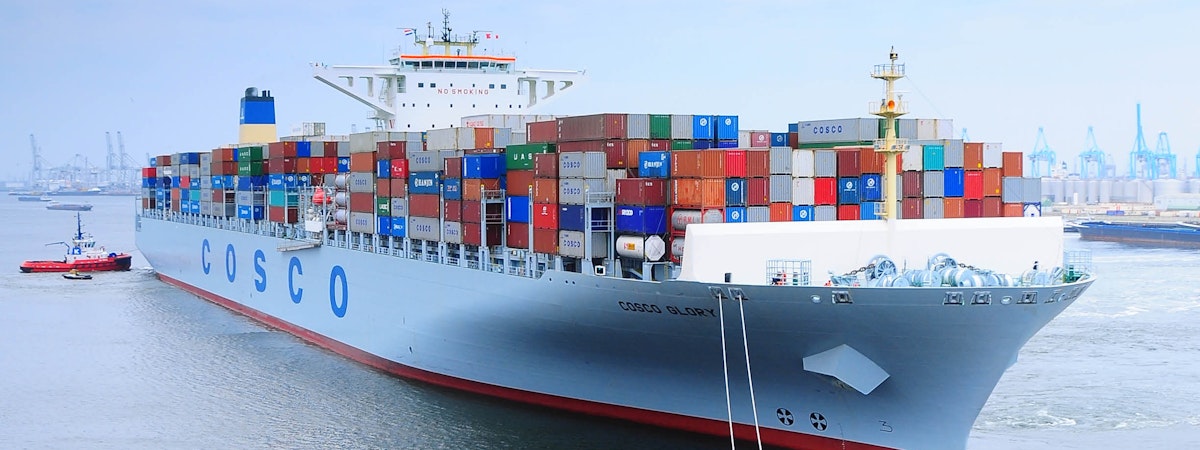
The Port of Rotterdam as a Pawn of the Chinese Government
n 2019, Professor Rob de Wijk published the book “The New World Order: How China is Stealthily Taking Over the World.” The book paints a shocking picture of an unstoppable totalitarian regime, whose leader openly declared in 2017 that the People's Republic of China aims to lead the world by 2047. The Port of Rotterdam has not escaped the influence of the Chinese superpower. During the 2019 Port Debate, Professor De Wijk stated that China has consciously invested billions in other European ports such as Piraeus (Greece), Trieste, and Genoa (Italy). "In China, they make no secret of the fact that this must come at the expense of ports here," said De Wijk. However, it remains to be seen if the decline of the Port of Rotterdam is the ultimate goal of these investments. Chinese (often state-owned) companies are also heavily investing in the Port of Rotterdam. The ultimate goal seems to be complete control over the global logistics chain, which is equally concerning.
The judicial power is not independent
The People's Republic of China is not a constitutional state in the European sense of the word; there is no separation of powers. The judiciary is not independent; the courts are an integral part of the state structure and do not operate independently. Moreover, the Communist Party is present in each of the state organs. Additionally, China has a questionable reputation regarding human rights. Worldwide, there has been outrage over the treatment of Uyghurs and other ethnic groups by the Chinese government. The latest Amnesty International report is unequivocal.
China keeps growing
The discussion about Chinese influence in the Port of Rotterdam seems to have subsided. And, as an old – this time not Chinese – dutch proverb goes: we dronken een glas, deden een plas, en alles bleef zoals het was. Understandably, the pandemic also created other priorities. However, this does not mean that China has suddenly changed its course; on the contrary.
The Chinese state-owned company Hutchison purchased the APMTR transshipment terminal this spring. The state company, which has been the majority shareholder of ECT since 2002, is taking over the terminal from the Danish company Maersk. Additionally, China Merchant Port recently acquired a 30% stake in the Rotterdam container terminal RWG. This acquisition made China Merchant Port the third Chinese state-owned company with a significant stake in the Rotterdam container sector. A few years earlier, Cosco had already acquired a 35% stake in ECT’s Euromax container terminal.
Free market conomy in China
Chinese state-owned companies in Europe continue to fully exploit the free market economy. And who can blame them? The opportunity is there. The problem arises when the rules of the free market economy are not respected in China itself. Additionally, a situation has developed where Chinese companies are taking away international contracts with rock-bottom prices, helped by seemingly inexhaustible subsidies and credits from the Chinese state. In short, there is no level playing field. If you’re playing a game, you need to follow the same rules. Pieter van Oord of the eponymous dredging company recently urged European politicians not to be naïve. Van Oord sees the writing on the wall now that the Chinese construction giant, supported by endless state aid, is unfairly competing for a prestigious project to deepen and widen the Elbe River.
Unequal playing field for European and Chinese companies
In response to parliamentary questions following these statements, Minister Kaag (Foreign Trade and Development Cooperation) stated in April 2021: "The government is increasingly concerned about an uneven playing field between European and Chinese companies. This involves situations where Chinese companies, with state support, enter the European market and compete on unequal terms with European players." She sees the solution in (European) regulations.
Minister Kaag has a point; the global problem of a rising economic superpower cannot be solved locally on the Coolsingel, in Café Loos, or in the Ballentent. Not Rotterdam, not the Netherlands, but Europe should act globally, and it seems that this is finally going to happen in Brussels.
Tools for the European Commission
IIn 2020, the European Commission published a white paper to start the discussion. Following this publication, the European Commission submitted a proposal for an EU regulation on foreign subsidies distorting the internal market to the European Parliament on May 5th. This proposal has three main components.
- If a third party plans to acquire a European company with a value of more than 500 million euros and has received more than 50 million euros in state aid in the past 3 years, this state aid must be reported to the European Commission.
- If a third party bids on a European public contract worth more than 250 million euros, the party must report any state aid received to the European Commission.
- Under the regulation, the European Commission can investigate unfair competition in smaller acquisitions and tenders.
With these tools, the European Commission can exclude third parties from public procurement that leads to unfair competition. The European Commission can also impose fines if a third party fails to comply with the notification requirement. For the record, we are talking about very large parties, with China being the elephant in the room. Perhaps consideration should be given to lowering the monetary thresholds.
Fair Competition
The proposal is currently being considered through the ordinary legislative procedure. This means that the European Parliament and the Council of Ministers are discussing the proposal. Once these parties reach an agreement, the European Commission will have the tools to tackle companies funded by the Chinese government. Let’s hope this happens in time. In the Port of Rotterdam, there seems to be no objection to Chinese investments, but only if they occur on the basis of fair competition.
Do you have questions about current measures within the port? Contact Aram van Bunge of Kelly Both.



